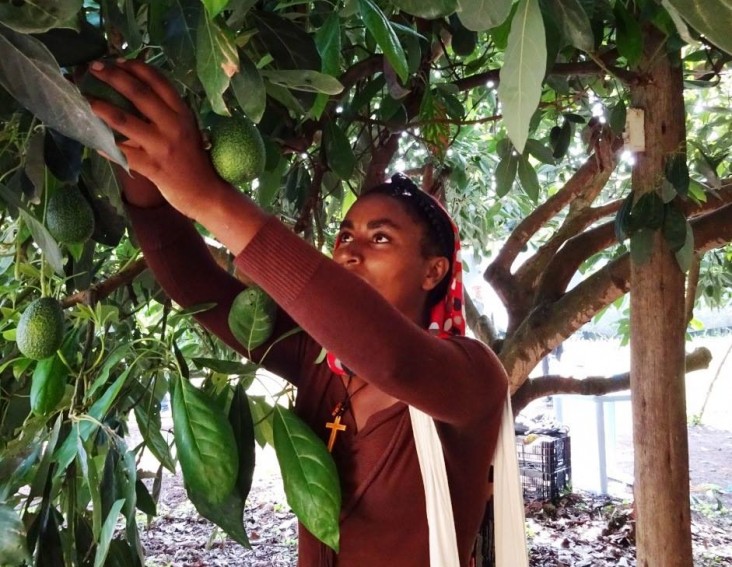
Addis Ababa, Ethiopia - The Ministry of Agriculture and Natural Resources joined the United States Agency for International Development (USAID) and Israel’s Agency for International Development Cooperation (MASHAV) today to launch Phase IV of the USAID/MASHAV/Ethiopia Joint Cooperation Project in Smallholder Horticulture. By building a stronger, more productive commercial horticulture sector, the Smallholder Horticulture Project aims to increase smallholder incomes and foreign currency earnings while making these nutritious crops more available to Ethiopian consumers.
State Minister of Agriculture and Natural Resources Wondirad Mandefro, U.S. Deputy Chief of Mission to Ethiopia Peter Vrooman, Israeli Ambassador to Ethiopia Belaynesh Zevadia, Head of MASHAV Ambassador Gil Haskel, and USAID Ethiopia Mission Director Dennis Weller attended the event.
The project represents the culmination of a decade of successful agricultural development partnership between Israel, the United States, and Ethiopia. Since it began in 2005, the Smallholder Horticulture Project has provided technical assistance to regional horticultural nurseries; training for extension agents working in federal and regional government institutes, non-governmental organizations, and the private sector; and direct extension to smallholder farmers.
The newly launched fourth phase will continue fostering the project's activities, while expanding extension efforts to improve smallholder production and marketing for crops such as avocado, mango, and citrus fruits. The project will help to access new domestic and export markets, as well as provide technical support to improve phytosanitary regulation for Ethiopian horticultural crops.
To commemorate the occasion, Haskel stated, “Building on MASHAV’s past work in Ethiopia, Phase IV of the Smallholder Horticulture Project will allow Israel to continue sharing its technical expertise in high-value horticultural production with Ethiopian smallholder farmers, strengthening the already deep cultural and historical ties that link our two countries.”
“Under our Feed the Future initiative, the U.S. Government is proud to continue our longstanding horticulture development partnership with MASHAV and the Ethiopian Government. Through this unique collaboration, we look forward to expanding the impact of our decade-long investment in the horticulture sector to improve the incomes, nutritional status, and food security of thousands of smallholder farmers,” said Vrooman in his remarks.
Wondirad concluded, “The Ethiopian Ministry of Agriculture and Natural Resources is pleased to endorse Phase IV of the Smallholder Horticulture Project, which we expect to advance progress toward the ambitious goals set for Ethiopia’s horticulture sector under the AGP-II.”
Smallholder Horticulture Project activities are ongoing in targeted woredas within Amhara, Oromia, SNNP, and Tigray regions, and will continue through October of 2019.







Comment
Make a general inquiry or suggest an improvement.